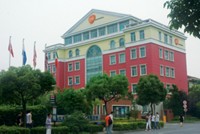Advertisement
Grab your lab coat. Let's get started
Welcome!
Welcome!
Create an account below to get 6 C&EN articles per month, receive newsletters and more - all free.
It seems this is your first time logging in online. Please enter the following information to continue.
As an ACS member you automatically get access to this site. All we need is few more details to create your reading experience.
Not you? Sign in with a different account.
Not you? Sign in with a different account.
ERROR 1
ERROR 1
ERROR 2
ERROR 2
ERROR 2
ERROR 2
ERROR 2
Password and Confirm password must match.
If you have an ACS member number, please enter it here so we can link this account to your membership. (optional)
ERROR 2
ACS values your privacy. By submitting your information, you are gaining access to C&EN and subscribing to our weekly newsletter. We use the information you provide to make your reading experience better, and we will never sell your data to third party members.
Policy
GSK to end neuroscience R&D in China
Shanghai was once the hub of the company’s neuroscience research effort
by Jean-François Tremblay
August 9, 2017

It wasn’t long ago that GlaxoSmithKline’s Shanghai lab led the firm’s research efforts in neurological diseases including Parkinson’s, multiple sclerosis, and Alzheimer’s. Now, after years of setbacks in China, the company is ending neuroscience R&D in Shanghai.
“Following a portfolio review and prioritization, we have decided to close our neuroscience R&D center in Shanghai and move key programs to our global R&D hub in Upper Providence [Pa.] in the U.S., where they will benefit from colocation with other pipeline R&D programs,” GSK says.
GSK announced plans to invest in Shanghai in 2007, saying it would build China’s largest R&D center operated by a multinational drug firm. To focus on neurological disorders, the center was to be staffed by hundreds of scientists under the guidance of Jingwu Zang, a leading multiple sclerosis researcher.
In 2013, however, GSK fired Zang after a paper he coauthored and published in Nature Medicine was found to contain mislabeled data. At the time, Zang vehemently denied research fraud and claimed that he and coauthors had made an inadvertent error. After the firing, GSK was soon embroiled in a much greater controversy.
After a long saga that included the discovery of video cameras in the bedroom of the company’s China head, GSK apologized in September 2014 and paid a fine of $500 million to the Chinese government for bribing doctors to prescribe the company’s drugs. The following year GSK laid off 110 of its China staffers for alleged ethical violations.
Last year, Min Li, who replaced Zang as head of neuroscience in Shanghai, publicly stated that GSK remained committed to its China neuroscience research. “By setting up our R&D structure in this way, we are committed not only to patients in China but also to talent in China,” the newspaper China Daily quoted him as saying.
Despite the retreat from neuroscience, drug R&D will go on in China, GSK insists. “The China R&D development organization will continue to be based in Shanghai and is set to expand over the next two years to accelerate the development of new medicines,” the firm says. “We remain committed to China and will focus our R&D efforts in China on the needs of China, at both our Shanghai site and our Institute for Infectious Diseases & Public Health in Beijing.”



Join the conversation
Contact the reporter
Submit a Letter to the Editor for publication
Engage with us on Twitter